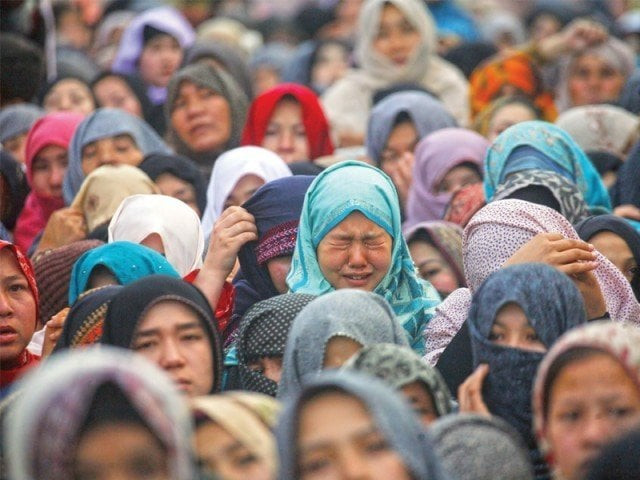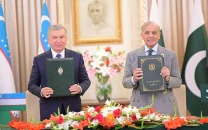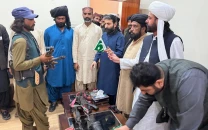Target killings: Documentary highlights plight of Hazaras
“Shaheedo tum kahan ho” profiles mourning families of victims of sectarian violence

“Shaheedo tum kahan ho” profiles mourning families of victims of sectarian violence. PHOTO: REUTERS
Titled “Shaheedo tum kahan ho” the documentary profiles mourning families of some of the victims who have been lost to sectarian violence prevalent in the country in general and target killings of the Hazara community in Quetta in particular.

It also depicts how members of the community face regular discrimination, whether they are going to school or shopping in marketplaces.
Directed by Muhammad Waseem, the documentary has been sponsored by Minorities’ Rights Group in the UK, which has been working closely with SDPI for many years.
The documentary underlines that Hazaras are targeted because they are easily identifiable by their features which distinguish them as an ethnic group. With a population of around 500,000, Hazaras mainly reside in Quetta.
Ahmad Salim, a religious scholar, said religious communities face atrocities in the country despite the fact that the Constitution pledges to safeguard the rights of all religious communities. He added that the issue is not of policy formulation but of implementation. Furthermore, he lamented the inaction of authorities over the killings of Hazaras.
SDPI Research Associate Mome Saleem said Muslim Sufis promoted the message of interfaith harmony and peace in society. “The idea was to bring the people together rather than dividing them on the basis of sect,” she added.

Dr Humaira Ashfaq of SDPI appreciated the diversity of religion in the country, saying that we are fortunate to have different religions and sects. “These differences represent beauty and should be celebrated. There is a need to promote inter-faith harmony in the country through education and dialogue,” she said.
In the ensuing discussion, Imtiaz Ali Qizilbash, an audience member, said the Shia-Sunni difference is an artificially created one, starting from the dictatorship of General Ziaul Haq.”[Zia] wanted to prolong his rule and he thought one good way to do it was to create the Shia-Sunni conflict so militant groups like Lashkar-e-Jhangvi and Sipha Sahaba were created, who believe that if you kill a Shia, you go to heaven.”
Whereas, he added, the Quran is clear about this: no Muslim can kill another Muslim — killing one human being is like killing all humanity. “So this so-called Islam was invented under the dictatorship of Zia. Hopefully, after the Peshawar massacre, something will be done to resolve this issue,” he further said.
Another audience member remarked that the state is responsible for protecting all religious community and should make sure that they freely observe their rituals and practice them without harbouring a fear of being killed or targeted.
Moreover, the documentary also discusses the problems of intersect marriages between Shia and Sunni communities, a phenomenon which seems to have sprouted up in the country recently.
Published in The Express Tribune, January 1st, 2014.



















COMMENTS
Comments are moderated and generally will be posted if they are on-topic and not abusive.
For more information, please see our Comments FAQ